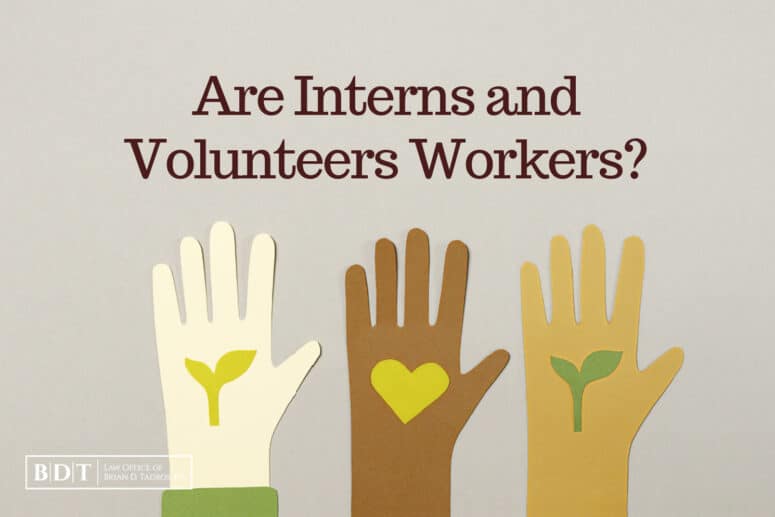
Florida—like most states—requires employers to provide workers’ compensation coverage if they have a certain number of employees.
At first glance, this might seem pretty straightforward. But if you’re an intern or regular volunteer, you might be asking, “What exactly is an employee? Are interns and volunteers ‘workers’ when it comes to workers’ compensation?”
This is a very important question for both employers and workers to ask. In this article, we’ll go over the differences between interns, volunteers, and employees and how each of these statuses affect your work-related injury.
What Is an Employee?
According to Florida Statute Chapter 440.02 (15), an employee is anyone who is paid for performing a service for an employer (including aliens and minors), whether their employment is “contract for hire or apprenticeship, express or implied, oral or written.”
If injured while on the job, employees are eligible for the full suite of workers compensation benefits.
These benefits include:
- Medical treatments
- Lost wage reimbursement
- Vocational training
- Funeral costs and death benefits
In most situations, it’s likely clear whether you are considered an employee. But there are other occasions when the distinction might not be so cut-and-dry.
Injured at Work In Florida?
Are Interns Workers?
According to Florida law, paid interns would be considered “employees” and would be eligible for all workers’ compensation benefits if injured on the job.
But what about unpaid interns?
Interns working for college credit or work experience certainly fit the definition of “employee” in the sense that they are contracted for a certain period of time. But are they still workers if they aren’t paid?
In most cases, no.
Because they do not receive a wage, unpaid interns do not qualify for lost wages compensation. In some cases, however, unpaid interns who suffer a work-related illness or injury would be able to receive medical treatment and/or vocational training, if necessary.
Are Volunteers Workers?
Unfortunately, the State of Florida does not recognize volunteers as workers, so employers are not obligated to include them under workers’ compensation coverage.
This doesn’t mean that you are never covered. The organization may choose to extend workers comp coverage to all volunteers, but this is extremely rare.
The law does make an exception for those volunteering for a government agency (such as volunteer firefighters/police officers, public school volunteers, and trial jurors).
Because volunteers in the public sector typically receive other benefits (such as medical coverage and indemnity benefits) in exchange for their work, they typically cannot receive lost wage replacement and would only be eligible for medical treatment.
Conclusion
While the laws surrounding workers compensation seem very straightforward, real-life cases are rarely cut-and-dry.
Workers comp eligibility can be questionable and employees, interns, or volunteers who suffer from occupational injury and illness often find themselves wondering what rights they have.
At the Law Office of Brian D. Tadros, P.A., we understand the confusion you may feel in the aftermath of a work injury. Contact us today to schedule your free consultation to find out what coverage you’re entitled to and what you should expect from your Florida workers’ comp claim.



